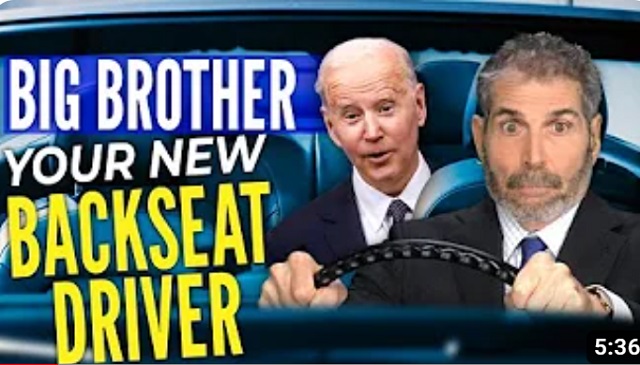Bruce Dowbiggin
Tale Of The Tape: Jerry Vs. Erin As Unifor Fights To Protect Media Slush Funds
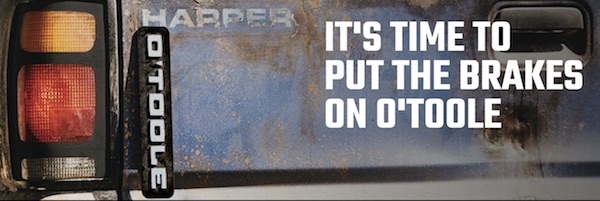
After calling the federal election, Justin Trudeau says Canadians need to “counter the ‘she-cession’ and turn it into a ‘she-covery’.”
The writ has dropped and Canadians now have the head-to-head matchup they’ve wanted. Conservative Party of Canada leader Erin O’Toole versus Jerry Dias, president of Unifor, Canada’s largest private union that includes everything from auto workers to TV workers.
Oh, you thought we were going to say the matchup between O’Toole and Justin Trudeau, the sitting prime minister of this frozen shore? That’s what the Racing Form says, no?
Certainly Trudeau is the nominal figure flogging for votes. But with Gerry Butts now a pom-pom boy on the sidelines Trudeau’s most influential and powerful ally is Dias, who heads the merger of the Canadian Auto Workers (CAW) and Communications, Energy and Paperworkers unions— a rabble 310,000 strong.
In the past Dias would have been safely in the camp of the NDP, the traditional home for labour in Canada. But since Jagmeet Singh turned the NDP into the Bernie Sanders Debate Club, a collection of fatuous socialists and Naomi Klein feminists, the NDP has no natural political home for Dias’ traditional hardball labour tactics.
Dias is unapologetic about his union’s desire to crush Conservatives of every stripe in Canada, describing himself as the “worst nightmare” of CPC leaders. Think Jean-Claude Parrot, the firebrand radical who used the Canadian Postal Workers Association as a cudgel to torture Canadians in the pre-digital world.
The union’s recent ad showing a rusted, decrepit pickup truck with O’Toole’s name covering Stephen Harper’s is a nasty piece of agitprop (made ridiculous because the disintegrating pickup is an American brand like the ones his auto members construct). “Canadian voters won’t be fooled by a new name on the bumper,” it promises while labelling the Tories as tools of big business and the filthy oil lobby. (Clearly he hasn’t checked Skippy’s dance card lately)
Unlike Parrot in the 60s and 70s Dias has the media oomf to effect the change he wants for the TV, radio and print journalists in Canada under Unifor’s banner. (CBC journos are represented by a separate but no less Woke union devoted to protecting its billion-dollar budget supplied by Trudeau.)

Prime Minister Justin Trudeau and Unifor President Jerry Dias embrace during the Unifor convention in Ottawa on Wednesday, August 24, 2016. iPolitics/Matthew Usherwood
While the CBC union kept its bias in-house in 2019 , Dias made no bones about using his medias might to get his puppet Justin Trudeau elected. Anyone expecting “balanced” Unifor journalists to go hard on Trudeau’s many failings (moral and ethical) was in for a shock. There was lots of dystopian Stephen Harper hyperbole about Tories enacting Handmaid’s Tale servitude on women and Simon Legree working conditions on the middle class. But calls for Trudeau bashing to quit? Get real.
Sadly for Trudeau and Dias it wasn’t enough to prevent the Liberals from losing their majority, and they have been forced to placate Singh and the self-destructing Greens to stay in power. They’ve complied, helping Trudeau escape a multitude of patronage, corruption, sexual assault, racial appropriation and Covid ineptitude. When that got too tight, he prorogued Parliament to still the baying hounds.
Happily for Dias in the wake of the minority, Trudeau’s Heritage Ministry has rewarded the yeoman service of Unifor’s journalists’ “resistance” in creating a slush fund for media outlets crying poor in Canada. Over $600 million was set aside over the five years for tax credits and other incentives aimed at propping up “struggling” news outlets. (This is addition to the approximate $1.5 billion shovelled into CBC/ Radio Canada to help it big-foot the digital news market in Canada by outspending private outlets.) Trudeau then appointed Unifor as one of eight groups who will help decide which media outlets will qualify for a government handout to journalistic outfits. The happy recipients of this baksheesh rarely explained why they were “struggling”, only that they deserved lotsa’ dough to ward off FOX News coming to Canada to do something something something.
Now, reports say that another payoff has been parcelled off to local journalists as the election takes off. Canadian Heritage was also refusing to disclose which media companies were awarded $61 million in subsidies billed as “emergency relief” during the COVID-19 pandemic.
There have been mild plaints of concern from some. The head of the Canadian Association of Journalists, Karyn Pugliese, noted in 2019, ”You have people who are dead set against the government giving any kind of money to media.” But then she added, “We’ve got some people who feel that something is necessary, because it’s important to keep news going.” Translation: Like Buckley’s, we take it but we hate the taste. Right.
The optics are clear. The union for journalists at major media outlets is partisan. How is one supposed to think they can hold Unifor’s opinions yet deliver honest, balanced coverage to Canadians during an election? It’s a bind previous generations strove mightily to avoid. This tranche of journos seems impervious to the mess they’ve made of their credibility.
With so much lucre being spread around, Erin O’Toole certainly has his doubts about their objectivity. He announced this past week that, as part of a Conservative government, he would eliminate the pork currently being fed to media. While keeping Radio Canada and CBC Radio, he’d cut all funding to CBC’s English-language digital operations, slash the English TV budget by 50 per cent, and aim to privatize the English TV operation by the end of his first mandate in government.
“The world of broadcast media has changed dramatically, but our public broadcaster is stuck in the past,” O’Toole said in the video. He indicated he’d also eliminate the special top-up payments to the companies that employ Unifor members.That puts the ball in Dias’ corner. How hard should he go in protecting the perks of Canada’s fading media interests? He serves as a useful foil to Trudeau, whose word salads and pontifications have grown increasingly banal to voters. With his pit-bull attacking style he can savage newcomer O’Toole in the harshest terms (although the CPC ads with Trudeau as a Willy Wonka character in a dress singing for a majority were venomous, too).
But Dias is already facing a public that believes the government should be fighting Covid-19 and economic issues, not each other. Push his members’ biases too hard— as Trudeau is doing— and he risks losing a great deal of an electorate sour on media’s performance over Covid, the border, Afghanistan, WE Charity, climate reset and much more.
As the cocky Nova Scotia Liberals learned this week in blowing a big lead to the Conservatives just hours after the federal election was called, six weeks is a long time.
Bruce Dowbiggin @dowbboy is the editor of Not The Public Broadcaster (http://www.notthepublicbroadcaster.com). The best-selling author of Cap In Hand is also a regular contributor to Sirius XM Canada Talks Ch. 167. A two-time winner of the Gemini Award as Canada’s top television sports broadcaster, his new book Personal Account with Tony Comper is now available on http://brucedowbigginbooks.ca/book-personalaccount.aspx
Bruce Dowbiggin
Coyotes Ugly: The Sad Obsession Of Gary Bettman

It came to this. Playing in the 6,000 seat Mullet Arena on the campus of Arizona State. Owned by a luckless guy who eschewed the public spotlight. Out of the playoffs, their bags packed for who knows where, the Arizona (née Phoenix) Coyotes gave an appreciative wave to the tiny crowd gathered to say Thanks For The Memories.
With that they were history. Although NHL commissioner-for-life Gary Bettman has promised the last in a set of hapless owners that he can revive the franchise for a cool billion should he build the rink that no one was willing to build for the Yotes the past 20 years.
The Arizona Republic said good riddance. “Metro Phoenix lost the Coyotes because we are an oversaturated professional and college sports market with an endless supply of sunshine and recreational choices. Arizona may have dodged a slapshot:
We have the NFL Cardinals, the MLB Diamondbacks, the NBA Suns, MLB spring training, the WM Phoenix Open, the Phoenix Rising, the WNBA Mercury, the Indoor Football League Rattlers and the Arizona State Sun Devils. There hasn’t been a household name on the Coyotes since Shane Doan, and half of Phoenix probably doesn’t know who he was”.
Likely they’ll be a financial success in Salt Lake City where there’s a viable owner, lots of money and a will to make it work. They’ll need a will because— stop me if you’ve heard this before about the Coyotes— the rink they’ll play in this fall has only 12,500 unobstructed views for hockey.
Watching this farce we recalled getting a call from Blackberry co-founder Jim Balsillie in 2008, shortly after our book Money Players was a finalist for the Canadian Business Book of The Year. We’d written a fair bit about the Coyotes in our work and someone had told Balsillie we might be the ones to talk to about a plan he was concocting to buy the bankrupt Coyotes and eventually move them to Hamilton.

Balsillie was salty over the way he’d been used as a stalking horse in the financial troubles of the Pittsburgh Penguins in 1990s. Flush with money from the huge success of RIM, Balsillie offered to buy the Pens, with an eye to moving them to southern Ontario if Pittsburgh didn’t help build a new arena for the team.
In time, Balsillie saw that Bettman was only trying to protect the investment Mario Lemieux and others had in the Pens. Balsillie was the black hat who eventually spooked Pittsburgh into giving the current owners what they wanted. At the end of the day, Mario got his money and Balsillie was given a “thanks for trying”: parting gift of nebulous promises.
Still smarting, Balsille vowed not to be used again. in his desire to bring the NHL to southern Ontario. So when the Coyotes owner Jerry Moyes threw the keys to the team on Bettman’s desk, he saw an opening in the bankruptcy that followed. Seeing Bettman as the impediment, Balsillie decided to buy the team out of bankruptcy, a process the NHL could not legally prevent.
What Balsillie wanted to know was “What then? How would Bettman fight back?” We told him that no one flouts Bettman’s authority within the NHL. (All the current owners since 1993 have come aboard on his watch.) And that he’d have to get the Board of Governors to approve his purchase. Odds: Nil.
That’s what happened. Rather than admit that the Valley of the Sun was poisoned for hockey, Bettman found another series of undercapitalized marks to front the franchise while the league quietly propped up the operation. No longer was the Coyotes’ failure about the fans of Arizona. It was about Gary Bettman’s pride.

Protestors stand outside a press conference in Tempe featuring Arizona Coyotes executives discussing propositions related to a new arena and entertainment district. (Photo by Brooklyn Hall/ Cronkite News)
Where he had meekly let Atlanta move to Winnipeg he fought like hell to save Arizona. And his power. (His obstinacy on U.S. network TV is another story.)
Fast forward to last week and the abject failure of that process. The Arizona Republic naively fawned on Bettman for his many attempts to save the team. In fact, they were just attempts to buttress his grip on the league. While the Coyotes may have been a mess, Bettman has succeeded in preserving the investments of most of the business people who bought his NHL business prospectus.
Sometimes it meant riding into Calgary to chastise the locals for their parsimony in not giving the Flames a new rink. Ditto for Edmonton. Ditto for Winnipeg and other cities. Other times it was to shore up weak partners to protect the equity of other prosperous cities. Sometimes it was to tell Quebec City, “Not gonna’ happen.”
For his loyalty to the owners and through some luck— Gretzky to the Kings— Bettman has made the NHL work in places no one might’ve imagined. Nashville. Raleigh. Tampa. Las Vegas. Dallas. Not at the level of the NFL, NBA or MLB, but at a comfortable equity-affirming status. Nothing happens without his say-so in the NHL. Or without him getting credit. Secondary NHL execs who wanted credit for their innovations were quietly punted.
When Houston finally gets a franchise from Gary they’ll part with $1.5 billion for the honour. While the commissioner has played down new franchises and expanded playoffs, you can bet your last dollar that he’s told owners they’re in line for more expansion cash— cash they don’t have to split with players in collective bargaining.
One more certainty. As long as Bettman rules the NHL you won’t see an NHL team back in Arizona.
Bruce Dowbiggin @dowbboy is the editor of Not The Public Broadcaster A two-time winner of the Gemini Award as Canada’s top television sports broadcaster, he’s a regular contributor to Sirius XM Canada Talks Ch. 167. Inexact Science: The Six Most Compelling Draft Years In NHL History, his new book with his son Evan, was voted the seventh-best professional hockey book of all time by bookauthority.org . His 2004 book Money Players was voted sixth best on the same list, and is available via brucedowbigginbooks.ca.
Bruce Dowbiggin
Why Are Canadian Mayors So Far Left And Out Of Touch?

‘The City of Edmonton pays for a 22-person climate team but doesn’t know who on that team is responsible for what, or what that team has accomplished. Meanwhile, Council takes a pay raise and bumps our property taxes by 8.6%” @michaelistuart
We just returned from a long trip to discover that the City of Calgary wants to potentially re-zone our neighbourhood. Bridle Estates is a collection of 175 bungalow villas for people aged 55-plus. While some people still work most of the inhabitants are retirees. The city’s earnest idea is to create low-cost housing for the tens of thousands arriving here in the city from away.
You can see why a city hall obsessed with white privilege wants to democratize our neck of the south-west corner of the city. Enforced justice has a great tradition. 1970s American cities decided that bussing was the antidote to segregation. After a SCOTUS decision allowing the practice in 1971 (back when liberals owned the court) progressives pushed through an aggressive plan to bus kids from the inner city to the leafy suburbs. And vice versa.
It worked like a charm. For conservatives, that is. It radicalized a generation of voters who soon installed Ronald Reagan as president, and empty buses went back to the depot. The Democrats went from the party of the people to the party people in Hollywood. With time dulling memories, contemporary Woke folk are reviving the integration dream. This time the mostly white suburbs will bear the brunt of the government’s immigration fixation (400K-plus in the third quarter).

There are meetings planned where citizens will be able to address their elected officials— no doubt in a respectful voice. But anyone who’s dealt with Climate Crisis Barbie— Mayor Jyoti Gondek— has much optimism. This is a mayor who exploited a three-way split in centre-right voting here to declare a Climate Emergency on her first day in office.
Then she rolled out hate-speech laws to protect her from being razzed in public. For this and other fabulist blunders— her messing with the new arena project drove a worse deal and a two-year delay in a home for the Calgary Flames— she faced a recall project (which failed to collect over 400K voters’ signatures).
With a housing bubble expanding everyday, Her Tone Deafness has decided that owning a home is so passé. ”We are starting to see a segment of the population reject this idea of owning a home and they are moving towards rental, because it gives them more freedom.” She added that people have become “much more liberated around what housing looks like and what the tenure of housing looks like.”
As the Calgary’s schmozzles and Edmonton’s dabble in climate extravagance illustrate the municipal level of government in Canada is a few lobsters shy of a clambake. Across the country major cities are in the hands of radical NDP soldiers or virtue warriors who would rather have symbols than sewers to talk about.
In Toronto, Jack Layton’s widow Olivia Chow is leveraging her 37 percent mandate to make Toronto a kinder, Wok-er city. In Vancouver and Victoria, B.C., the open-air drug agendas of new mayors and city councils have sent capital fleeing elsewhere. Despite crime and construction chaos, Montreal mayor Valerie Plante won a second term, by emphasizing her gender.

In times when the coffers were full, this ESG theatre might have been a simple inconvenience. But since the federal and provincial governments began shoving responsibilities and costs downward to municipalities there is no wiggle room for grandstanding politicians at the city level. Or for hapless amateurs.
With the public incensed over residential property tax increases on one side and the blandishments of aggressive developers on the other, competent governance has never been more needed in the urban areas. While feds can (and have) printed money to escape their headaches and the provinces can offload costs onto the cities, the municipalities have no room for risk.
The time bomb in this equation is the debt load that the three levels can sustain. After this week’s budget, federal spending is up $238B, or 80 percent since 2015. Coming off this free-spending budget the feds have pushed the federal debt to more than $1.2 trillion this year (in 2015, the debt was $616 billion.) None of the provinces has shown any appetite for the 1990s-style cuts to reduce their indebtedness. Leaving cities to crank the property-tax handle again.
So far, Canada’s cities have been able to use friendly municipal bonds to ease their fiscal problems. But if the Canadian economy continues its tepid performance with no reduction in debt, financial experts tell us that there could be a flight from Canadian municipal bonds— with a consequent spike in interest rates elsewhere.
The backlash on free-spending governments will be severe— and restricted municipalities will be hardest hit. None of this is resonating with Canadians still flush with cash from Covid. The stock markets are still buoyant and those living in cashbox houses are counting their dividends. Willful denial is the Trudeau legacy.

Which is why so many Canadian were shocked last week when American AntiTrump media star Bill Maher did an intervention on Canadian conceits. Using the True North as his warning to America, Maher ripped apart the gauzy leftist dream of Canada as the perfect society, the Sweden north of Estevan. By the time he was done, the single-payer myth was bleeding on the ground.
Maher knows that the bill is coming due for free-spending Canada and its climate charlatans. (The IMF is already warning of a global crisis over debt loads.) The question is: will Canadians come to the same conclusion before it’s too late to save the cities?
Bruce Dowbiggin @dowbboy is the editor of Not The Public Broadcaster A two-time winner of the Gemini Award as Canada’s top television sports broadcaster, he’s a regular contributor to Sirius XM Canada Talks Ch. 167. His new book Deal With It: The Trades That Stunned The NHL And Changed hockey is now available on Amazon. Inexact Science: The Six Most Compelling Draft Years In NHL History, his previous book with his son Evan, was voted the seventh-best professional hockey book of all time by bookauthority.org . His 2004 book Money Players was voted sixth best on the same list, and is available via brucedowbigginbooks.ca.
-

 Brownstone Institute1 day ago
Brownstone Institute1 day agoDeborah Birx Gets Her Close-Up
-
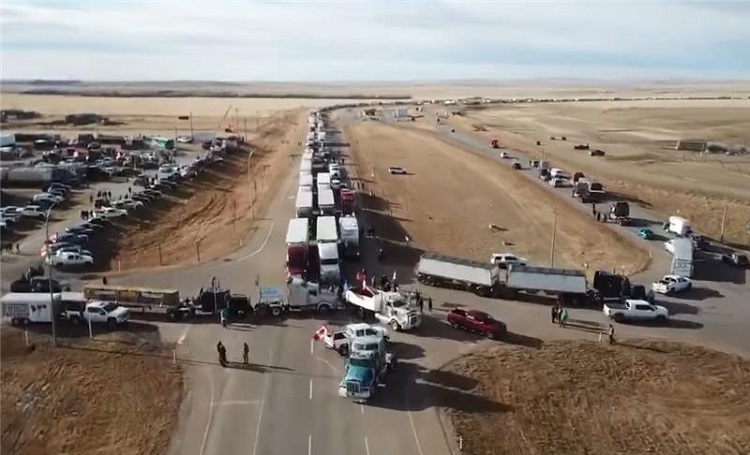
 Alberta1 day ago
Alberta1 day agoCoutts Three verdict: A warning to protestors who act as liaison with police
-

 Alberta1 day ago
Alberta1 day agoAlberta moves to protect Edmonton park from Trudeau government’s ‘diversity’ plan
-
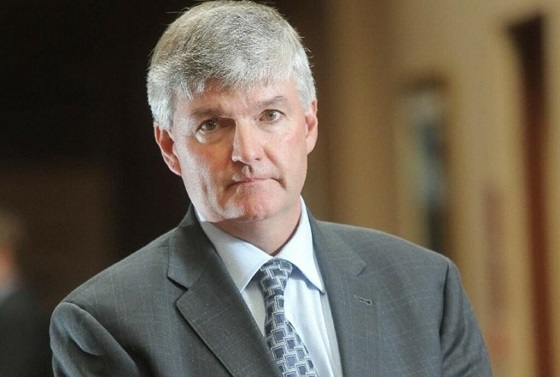
 Energy1 day ago
Energy1 day agoCanada Has All the Elements to be a Winner in Global Energy — Now Let’s Do It
-
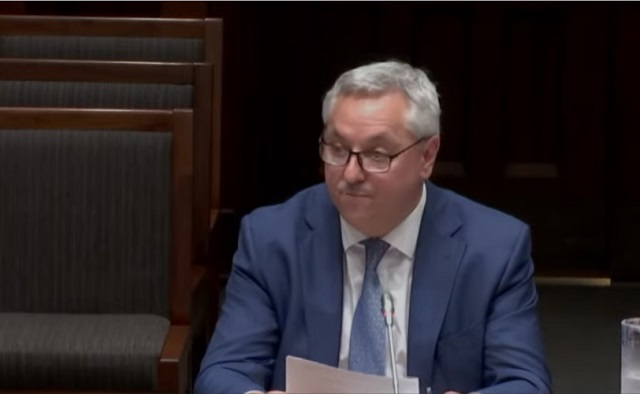
 espionage2 days ago
espionage2 days agoCanada’s intelligence chief says he personally warned Trudeau about China’s election meddling
-

 Business1 day ago
Business1 day agoMaxime Bernier warns Canadians of Trudeau’s plan to implement WEF global tax regime
-

 Frontier Centre for Public Policy2 days ago
Frontier Centre for Public Policy2 days agoThe tale of two teachers
-
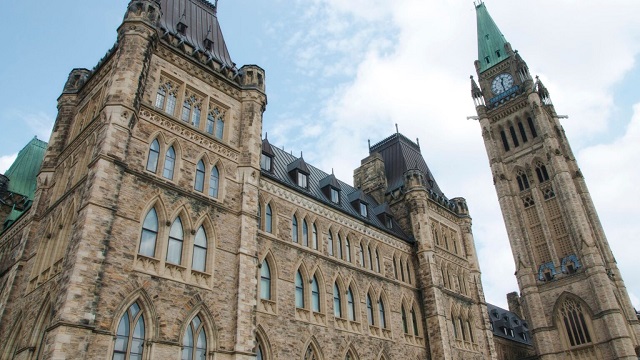
 Freedom Convoy1 day ago
Freedom Convoy1 day agoOttawa spent “excessive” $2.2 million fighting Emergencies Act challenge




